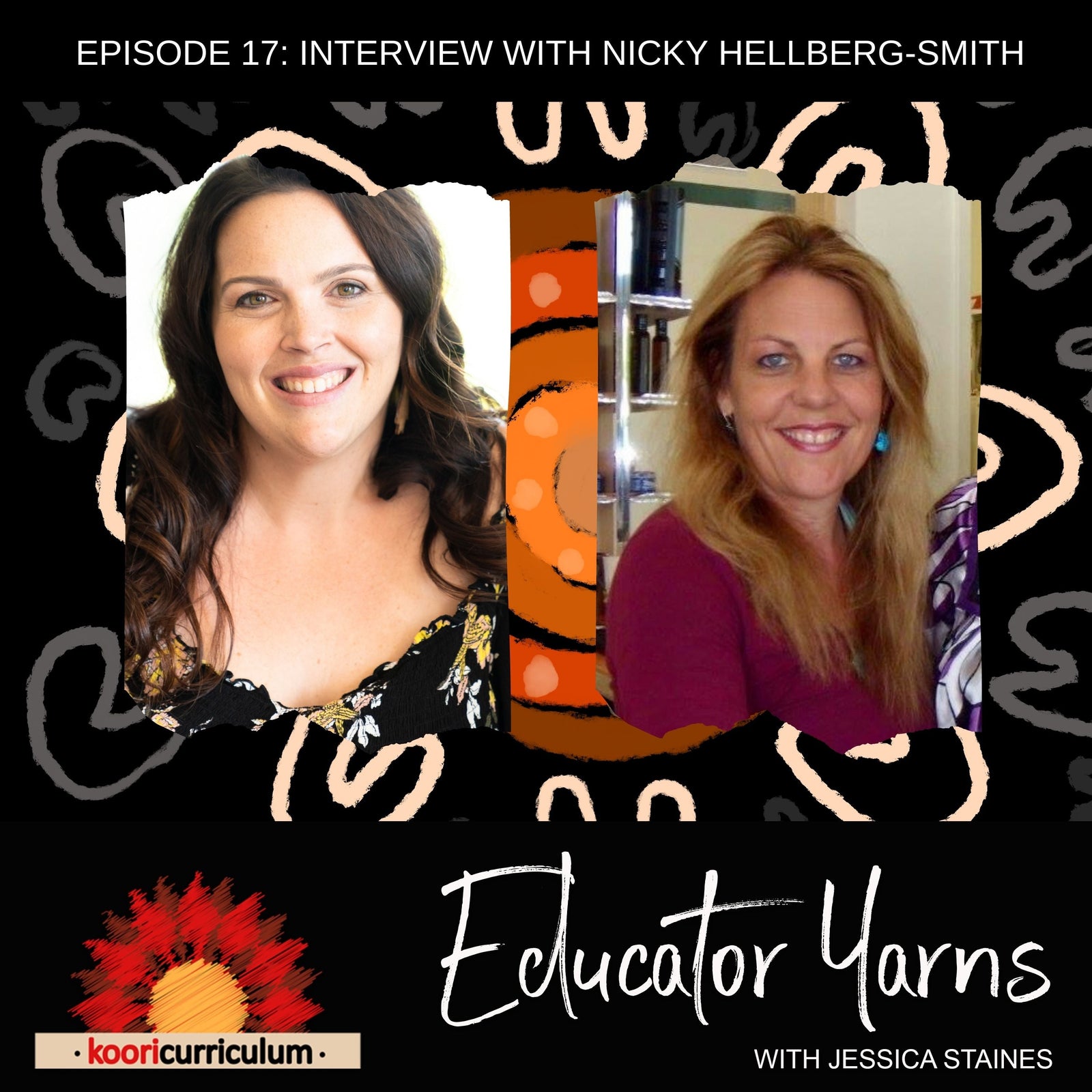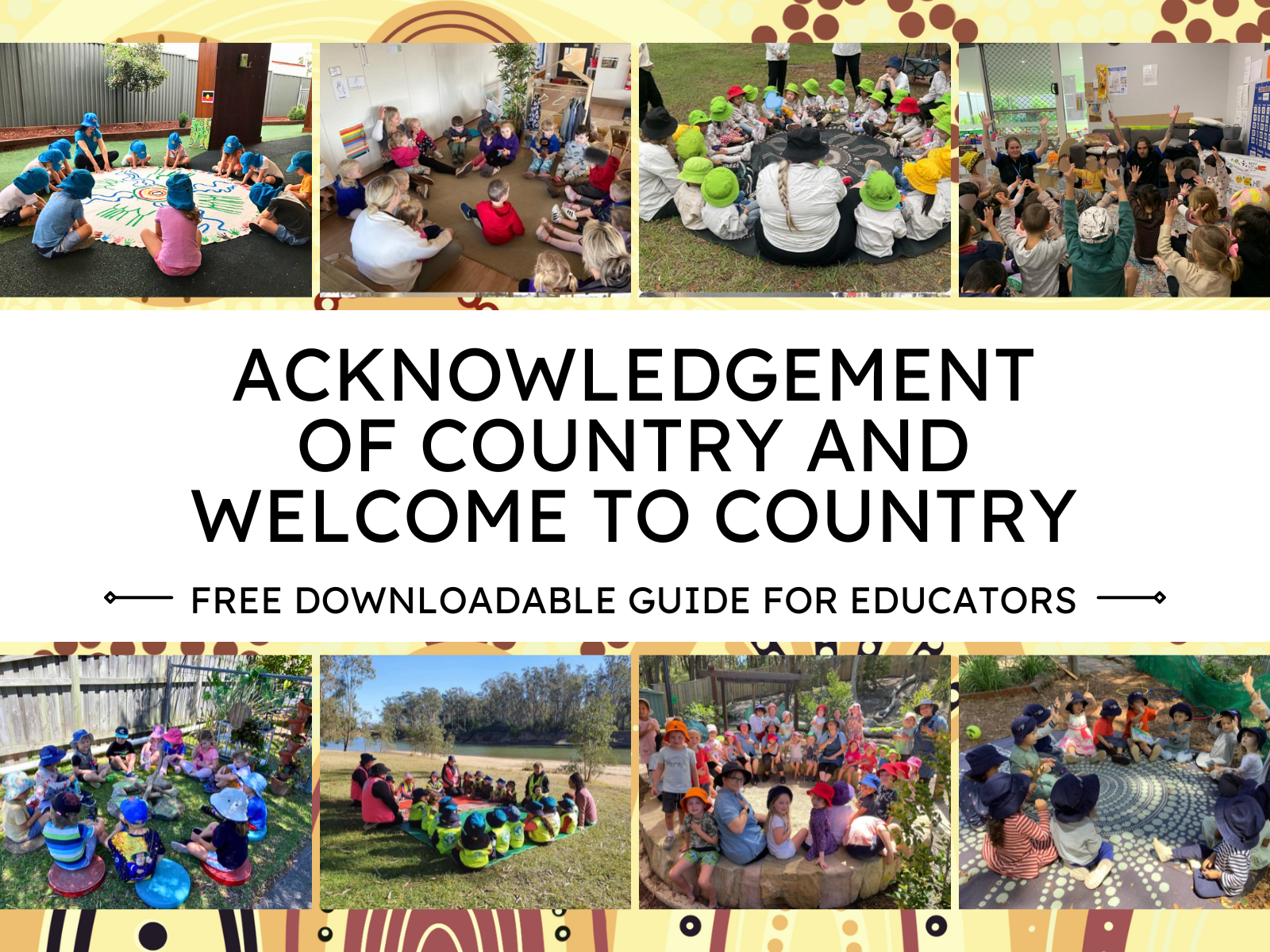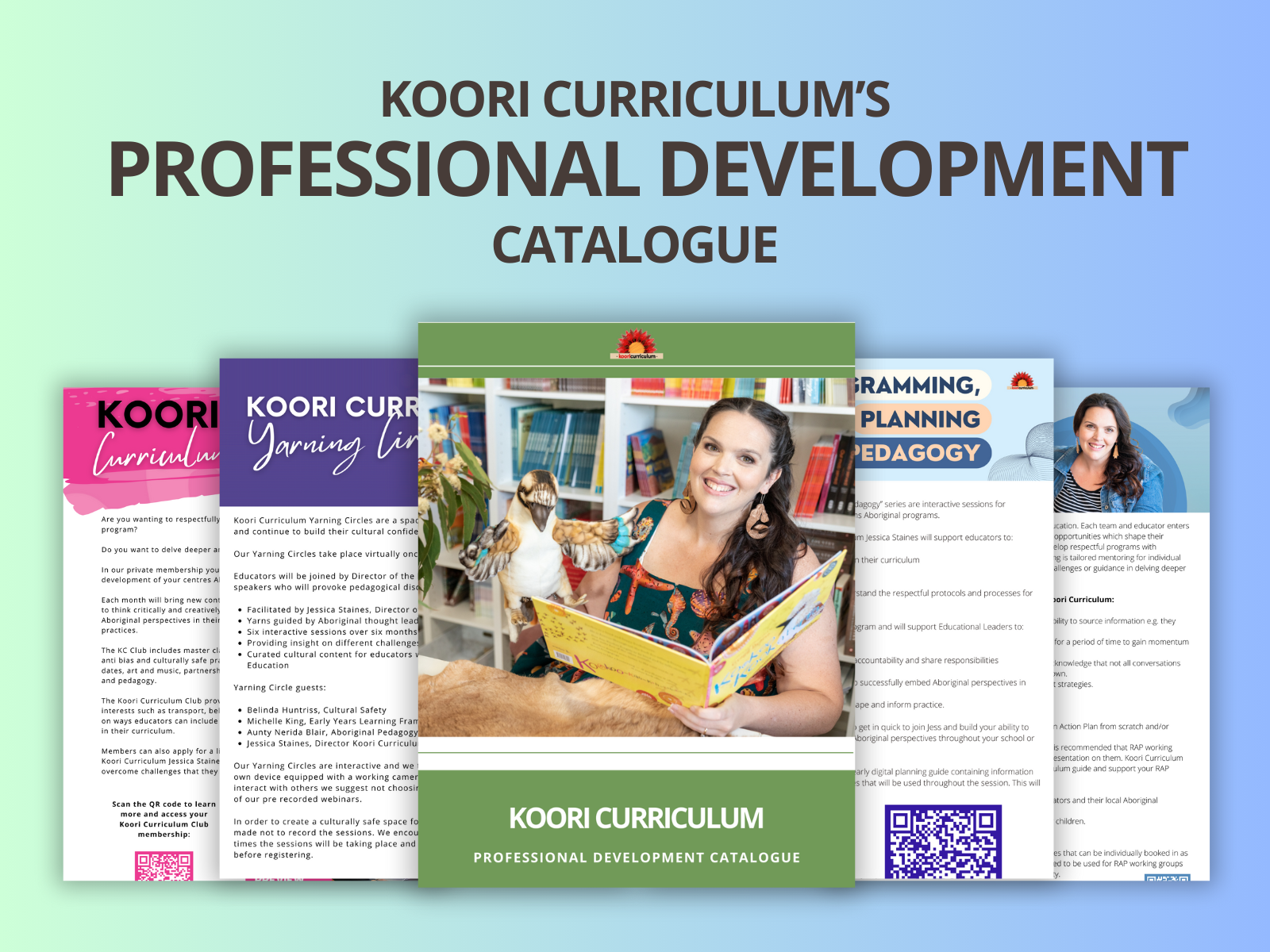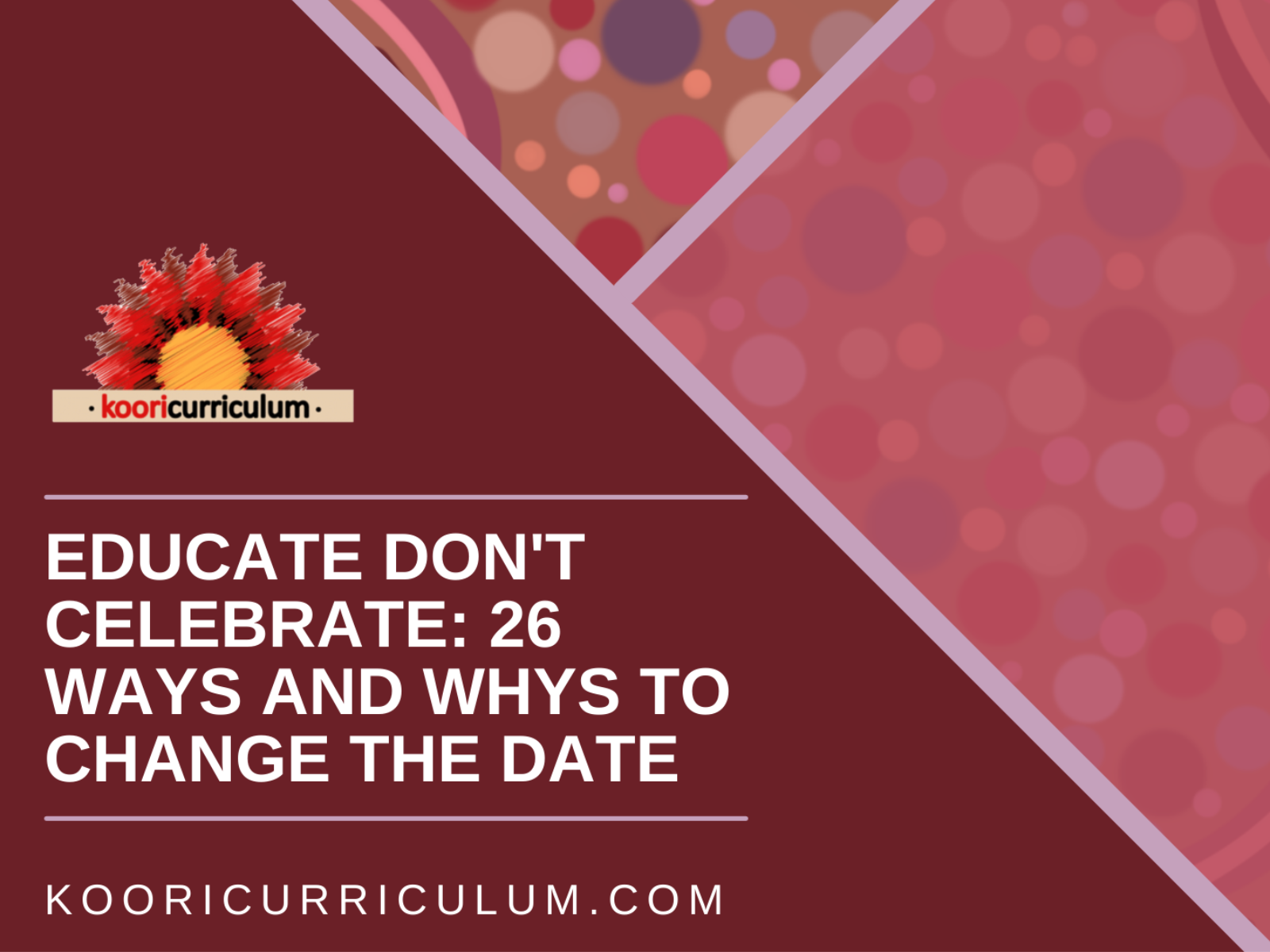
Educator Yarns Season 2 Episode 17: Interview with Nicky Hellberg-Smith
On The Educator Yarns today, Jessica speaks with New Zealand educator Nicky and her experiences as a linguist and sign language interpreter within the Australian education system and Aboriginal communities
Nicky speaks in detail about Two-Way Learning and the process’ by which children and educators are considered both teachers and students on equal footing. She also discusses the importance and empowerment of the child being able to share their own cultural knowledge and how her own New Zealand educational upbringing has informed her work both as a teacher and an avid advocate for first nations language.
SHOW NOTES
Nicky:
I see it very quickly in the kids' faces and eyes when you connect to something that you can see they connect with. Them also being the teacher for their cultural and linguistic language knowledge...
Jessica Staines:
Understanding, I guess, self-determination and principles.
Nicky:
When there's some meaning for them, there's pre-existing knowledge for them, then they become those strong leaders of the future.
Speaker 3:
You're listening to the Koori Curriculum Educator Yarns with Jessica Staines.
Jessica Staines:
I'd like to acknowledge the [Duckingham 00:00:38] people, the traditional owners of the land on which I am recording this podcast. I pay my respects to their elders both past, present and emerging and pay my respects to all Aboriginal and Torres Strait Islander listeners.
Hi everyone. My name is Jessica Staines, director of the Koori Curriculum. For those of you that aren't familiar with our podcast, season two is all about our new book Educator Yarns, we're meeting and interviewing with our educator contributors from right around Australia who will be sharing little snippets of their piece. It'll be a combination of stories about why embedding Aboriginal perspectives is so important, how to connect with local community, how to embed Aboriginal perspectives in our programme, how to work with anti-biassed approaches and so much more. So make sure you listen in and enjoy the episode. Bye for now.
Hi, everyone Jess Staines here. Welcome to another Educator Yarns podcast. Today's guest is Nicky, a New Zealander who has been calling Australia home for over 33 years. Nicky is a former sign language interpreter and curriculum developer. Nicky 's literary debut has come from her dedication to teaching and learning from Aboriginal people in remote Western Australian communities over the last 15 years. As a linguist and an early childhood educator, she is passionate about effective educational philosophies in multi-lingual and by-cultural contexts particularly in early childhood.
Based in Broome, Nicky lives with her husband who was her biggest fan. They have two daughters and are the proud grandparents to four wonderful grandchildren. Today's episode, we will be talking about two-way learning, what that means, what that looks like and the importance of first languages in Australia and what that looks like in an early childhood context. Before we start going into our podcast, you were able to just give yourself a bit of a introduction, essentially like how your work started in early childhood.
Nicky:
Sure. I think it started a little bit by chance. I had never expected to become a teacher. My parents both were teachers and I didn't expect that that would be my job. Actually, when I was thinking about what I might do, I fell into sign language interpreting as well and I just loved the language aspect of it and the uniqueness of it and the cultural aspect. And I guess that job that I had for over 20 years led me into interpreting in a primary school environment in Western Australia. And I guess that was a catalyst, I suppose, for... Working in the school environment. I received a couple of scholarships so I decided I would try in as a teacher and those scholarships assisted me doing that while I was also still interpreting full time.
And then being in Broome, which is where it was, there's a lot of Aboriginal connection there and a lot of good cultural and linguistic activity going on in the town. There was at that time when I went there in 2005. So, I don't know, maybe going back to when I was a kid and I was travelling around the Pacific Islands and me learning the language of where we were and really enjoying that and using it a lot and retaining it and just really connecting with the local people and having great friendships and just being one of them. It's all sort of brought me to becoming an educator in non-English speaking environments and in a cultural language different to my own.
Jessica Staines:
Mm-hmm (affirmative). I think that's quite the journey that you've been and there's so much from that that I can in a way relate to. My mum was an early childhood teacher for, I think, 10 years or something before I was born and then I think growing up I was probably the same as you, I never thought I would be a teacher. I think for a long time I thought I'd do social work or something like that. So, I was the same, I did it as a bit of a part-time job while I was trying to work out what to do and then fell in love with what I was doing and similar to you, just got different opportunities to go and study and took them and never really looked back.
But what's interesting, you having learnt sign language is that Aboriginal people have our own form of sign language as well. Did you experience some of that in Broome, Aboriginal sign?
Nicky:
Yeah, I sure did. I was working there, interpreting both in schools and at TAFE, I was teaching it. So I wrote the curriculum in Broome at the time, there'd been a seven year gap where there weren't any courses and so I was able to re-write the curriculum there and teach it at night. So then I had Aboriginal family members, Aboriginal workers at schools and people who just had friends or family that wanted to learn a bit.
And they already had their home sign that they were doing with their family members and they also used it when we went out on country, for example. Of course, they would be using it across distance or if there was a little conversation that people wanted to have, there was all the signs that went with those non-verbal conversations [crosstalk 00:07:07] even hearing people used. So all of the people knew the signs and then whether there was an Aboriginal kid in the mix or not, it didn't matter because everyone was using these signs for certain reasons. So yes, I was really intrigued by that which I hadn't seen previously in non-Aboriginal context. So I was very intrigued by that for sure.
Jessica Staines:
Yeah. My experience of it has been Aboriginal sign is being out on country particularly like when following animals and tracking animals because you're trying to use as little noise or make as little noise as possible. So there's lots of different signs for various animals whether it's [amews 00:07:53] or [kipmes 00:07:54] or [kukubaras 00:07:55] even, there's different signs for that. And I've seen a lot of educators now use some of these signs in their language group experiences with children when they're singing which I think is a really nice way to include that bit of Aboriginal language as well, it's not just the verbal language but the non-verbal and that body language. And I guess that's really what your piece was about is this two way learning that you... Is how you referred to it. But I know that a lot of educators wouldn't have heard of two-way learning before. So are you able to just give us an explanation of what you mean by that?
Nicky:
Sure. I guess as an early childhood educator, I love it when the children spark their enthusiasm and so when you're connecting to something for them that they already know like the sign that their family have used out on country or the words that they know in their own language, they're sparked already and they absolutely connect. When there's some meaning for them, there's pre-existing knowledge for them, it's a topic they like or know a little bit about and their enthusiasm just overflows when it's like that. So I see it very quickly in the kids' faces and eyes when you connect to something that you can see, they connect with as well. And you've found a little topic that is just perfect for the situation.
So when I've gone into an Aboriginal context which I absolutely love working in as a linguist, I learn so much on the job and in the environment and in the community and with the local kids and then their families as well. And so for me, two-way learning was about me being the teacher and being the student, and then my students being the student and then them also being the teacher for their cultural and linguistic language knowledge, they're thirsty and hungry for knowledge but they're also really interested to provide their understanding and knowledge to me.
So it's me going into that environment and being open to accept and receive all of that new information so that the connections can be strong and deep and the children can really engage well with the curriculum and so that I can know what curriculum content to include. So, two-way for me has been working in collaboration with [aiaios 00:10:58] at school which is what we call them in Western Australia. It really doesn't encapsulate everything they are but Aboriginal and [inaudible 00:11:07] education officer, they're really team teachers with us. And they are the absolute backbone and essential for it to be effective at school.
And so I had really strong relationships still now with my team teachers that I have worked with all across Western Australia. So it's not just the adults who are the teachers but in my mind the kids providing me with that two-way learning environment that they want to teach me about and then I can engage better with it.
Jessica Staines:
And I think that's what... It's about being aware of your world view as a non-indigenous educator and how that can be different to Aboriginal students that you're potentially teaching in the classroom. But it's also what it looks like to see Aboriginal children thriving in an early learning context or in a school curriculum and understanding self-determination and principles. And fostering children's agency particularly for non-indigenous educators that are teaching Aboriginal children to not be coming in as the expert on somebody's culture.
And we talk about Aboriginal pedagogy so the one that I mainly work with is the Eight Ways of Learning and one of the eight ways is called story sharing and it's about linking children's personal narratives to the classroom curriculum. So getting them to make those can also, fostering them to make those connections and really building that relationship and rapport. So truly understanding what it means to know children rather than just simply knowing about them and their culture. I don't know if that makes sense.
Nicky:
Totally. Yeah. I think that's why keeping the classroom that I did as a Montessori style classroom worked really effectively because the children did have urgency and did bring autonomy to the classroom already from their community lives. So it's suited really well for them to connect with things in the classroom that interested them and have a lot more choice and freedom as to what they were going to connect with.
And definitely what you said, it can be very easy. And as a non-Aboriginal person, you've got the curriculum and your own cultural background and experiences and it can be very easy to not have that two way learning environment for children and think that that should be okay. But the Aboriginal cultural standards' framework and the amount of Aboriginal content that can go into your lessons and into your environment is limitless.
And if you have those strong connections and relationships, then the better it can be for the kids with that content and the more aware then you are of what you don't know and the more you then strive to know and learn about. That urgency definitely for kids is crucial and really important and not just for in the environment, for their learning at the time, but for autonomy in the future and self-determination in the future of the community environments and the communities as a whole. With good educational practises and good educational experiences for the children along the way, then they become those strong leaders of the future who can articulate well what they want in their communities and what they need and be listened to properly and taken seriously.
Jessica Staines:
Yeah. And I don't know if this has had any influence on your teaching, but did you ever teach in New Zealand with the [TEF archi 00:15:35]?
Nicky:
No. I left after I finished school but before I was a teacher. I was interpreting for a dear friend at school but not as a job just as a student and a friend. But no, I haven't done anything at all in education in New Zealand. But I do remember my experience at school there and the start of two-way environment. They are definitely the start of the bilingual programme in [inaudible 00:16:17] and the linguistic and cultural value that was there an experience for everybody that was just a normal thing to have two languages and two cultures at school and the culture was embedded in all of our practises at school. And then the language is embedded in everyone's vernacular in the country. So...
Jessica Staines:
When I went to New Zealand, it was like the vision of what I felt needed to happen here was happening there already. So we went to the Te Reo Maori schools where they were only speaking language to children. But those children weren't necessarily Maori, they were from all different cultural backgrounds. And to see that language was being.. Well, the mother tongue of the country was being privileged over English was incredible for me.
But then you're looking at their version of the early years learning framework, the Te Whariki and saying that was bilingual and the way that culture was privileged, the whole way through that framework. So having had that experience then reading your piece for the Educator Yarns book, it was just interesting to me, I could just say how that was two-ways learning and that was probably the education system that you were brought up in that then you're saying... Transferring that into an Aboriginal context here in Australia.
Nicky:
Yes. There are quite a few Kiwis in the Aboriginal context, I have to say. And I think it might be because that's just normal for Kiwis. And so it's not hard to come to, it's how we're thinking about culture and language and mother tongue and different cultures and languages and that they're equally valuable and show equal value in the classroom environment just as a matter of course. It's maybe why there are a lot of Kiwis in those environments and why it's a good fit as well.
Jessica Staines:
Yeah. There's so much in your book that I'm so grateful that you shared with us. And I think it's this... You can see that it was both like a personal journey and experience for you that you were on whilst this professional journey as an educator. It's really special and I think that some of the images that you were able to share really capture that quite strongly as well. So these Educator Yarn podcast series though are really short and sweet because they're just meant to be little sneak peeks into the pages of the text and encouraging our listeners to check them out. But I just wanted to thank you so much, Nicky, for taking time out of your schedule, which I know has been a little bit crazy for just a little to join me and have this Yarn. So thanks heaps.
Nicky:
Thank you. And it was a real honour to have written that piece. I'm so grateful to the communities who allowed me to share their stories and allowed me to share their images as well and also welcomed my husband and I so beautifully into the community and taught us so much. We're off on our next three year journey into another remote community in the Outback Kimberley in Western Australia next year. So, we're really excited for the new one and hope that'll be even longer term than the last ones. But I really appreciate the opportunity. I've been able to contribute something to the Educator Yarn. So thanks for the invite.
Jessica Staines:
Thanks so much, Nicky. I really appreciate it. I hope that you enjoyed this episode and had a great little sneak peek between the pages of our new book Educator Yarns. If you'd like to ask questions or connect with me, best to join our Facebook group, the Koori Curriculum Educator Community which is free for all of our listeners and members.



